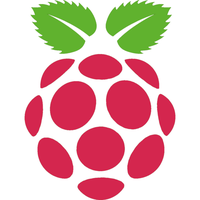 NEWS 160426 about RaspEX for Raspberry Pi 3 and Pi 2
NEWS 160426 about RaspEX for Raspberry Pi 3 and Pi 2
In RaspEX Build 160421, based on Ubuntu 16.04, I could not include Kodi (XBMC) Media Center (a free and open-source media player software application developed by the XBMC Foundation) without removing LXDE and many other programs. Now I’ve found a solution. I was able to install Kodi 16.0 alongside Fluxbox. A Desktop environment besides Kodi is needed so you can configure your wireless network and other stuff. Study all installed packages in Build 160426.
See a screenshot when my wireless network is configured
See a screenshot when Kodi is running
The Raspberry Pi 3 is the third generation Raspberry Pi. It replaced the Raspberry Pi 2 Model B in February 2016.
Compatibility
Unfortunately not all systems made for Raspberry Pi 2 will run on the new Pi 3. They need to be upgraded with a new kernel. I therefore had to upgrade the systems I distribute. I.e. RaspEX, RaspEX with OpenCPN, RaspAnd and RaspArch. I have now (160426) upgraded all systems. RaspEX Build 160426, 160421 and 160402 runs very well on Raspberry Pi 3. You can (of course) also run the new RaspEX systems on a “old” Raspberry Pi 2.
NEWS 160426 ABOUT RaspEX
RaspEX Build 160426 is a Linux ARM system for Raspberry Pi 3 and Pi 2. It is based on Debian Jessie (Debian 8), Ubuntu (Ubuntu 16.04, released 160421) and Linaro (Open Source software for ARM SoCs). In this new version (160426) I’ve replaced LXDE Desktop environment with Fluxbox, Wicd Network Manager with Wifi-Radar and Firefox with Qupzilla. The replacements were necessary to make it possible to install Kodi Media Center 16.0. NOTE: Kodi (XBMC) Media Center is also installed in Build 160402 based on Ubuntu 15.10.
Screenshot 1 – RaspEX Build 160426 with Fluxbox
Screenshot 2 – RaspEX Build 160426 running Kodi adding Video add-ons
Screenshot 3 – RaspEX Build 160426 running Kodi adding Picture add-ons
Screenshot 4 – RaspEX Build 160426 running Kodi – System Info
Screenshot 5 – RaspEX Build 160426 running Kodi adding Music add-ons
More about RaspEX Build 160426
RaspEX Build 160426 uses Fluxbox as Desktop environment. (Fluxbox is very light on resources and easy to handle but yet full of features to make an easy, and extremely fast, desktop experience). Furthermore Kodi (XBMC) Media Center (a free and open-source media player software application developed by the XBMC Foundation). Many other useful programs are pre-installed. Quzilla is used as Web Browser and Wifi-Radar as Network Manager. You can use Apt-get to install any extra packages you may need. RaspEX uses Ubuntu’s software repositories so you can install thousands of extra packages if you want. Please be aware of that some new installations (for example of Firefox) will break the Kodi installation).




